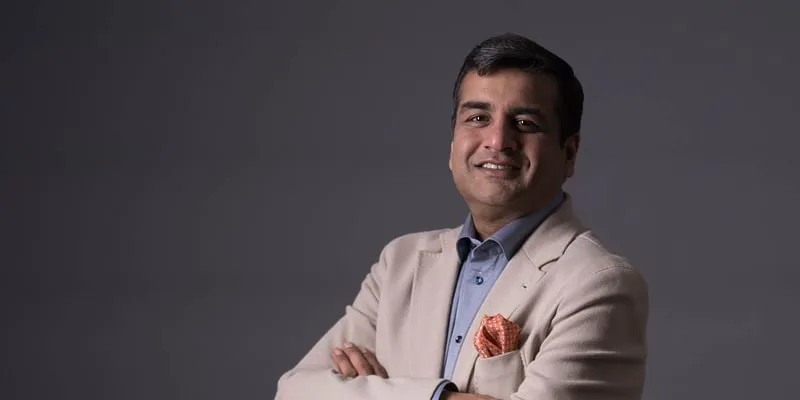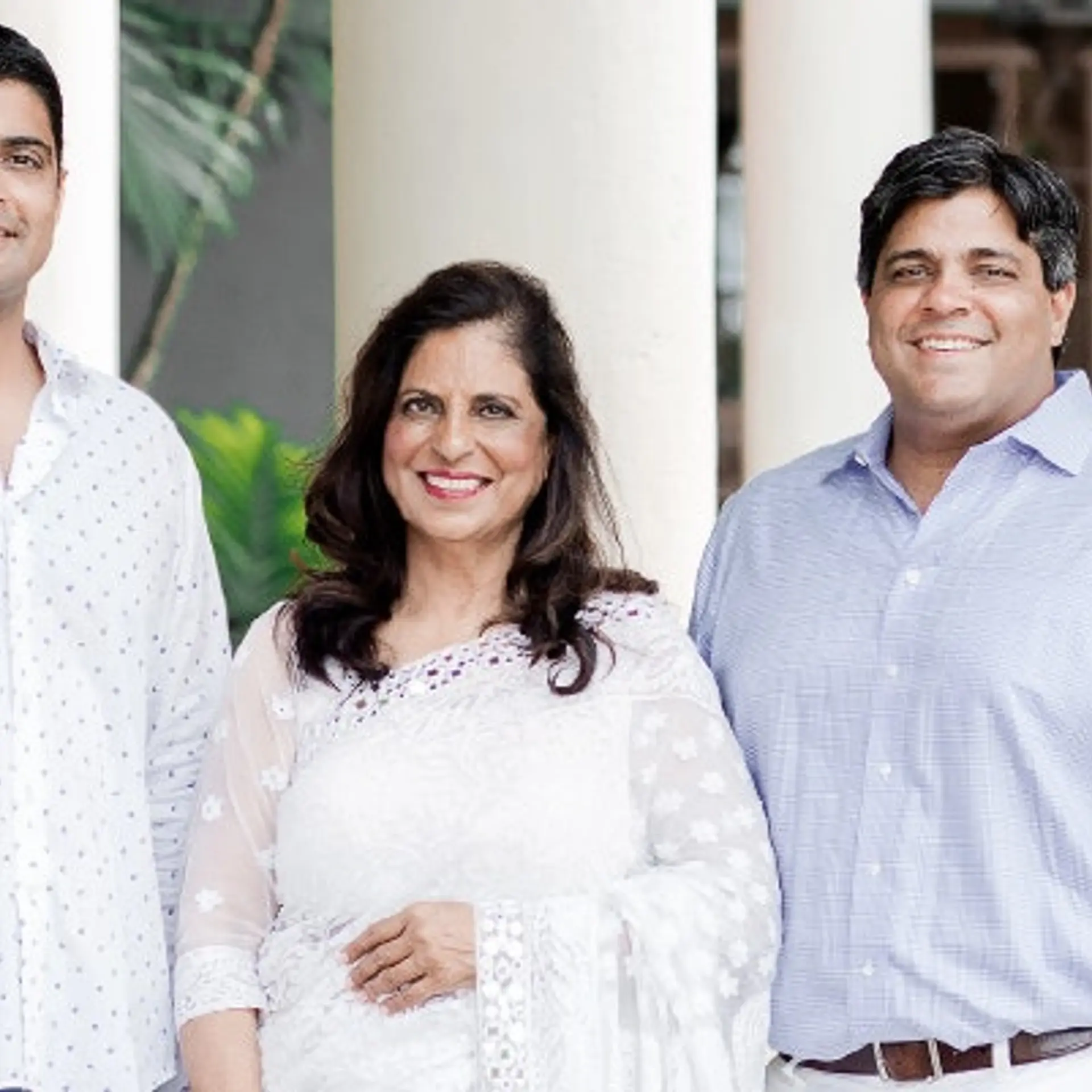How Gujarmal Modi built a multi-billion dollar business starting with Rs 400 in his pocket
In an exclusive interview with SMBStory, Samir Modi, third gen entrepreneur, managing director at Modi Enterprises, and Gujarmal's grandson, explains how the family business turned into a multibillion-dollar venture, and how coronavirus has affected its operations.
Born in 1902 in Mahendragarh, Haryana, Gujarmal Modi was just six days old when he lost his mother Chandi Devi to sepsis. His father Multani Mal Modi remarried shortly after, and it was Gujarmal’s step-mother Gujri Devi who brought him up.
In 1919, still under the British thumb, India was reeling from a sharp increase in food prices, following the end of the first World War. That year, Gujarmal began working as cashier at his father's food grain mill.
He worked at the mill for years, but he did not know how to overcome the feelings of futility he was experiencing.
His turning point came in 1932, when his wife became pregnant. Deciding he wanted to make something of his life, Gujarmal set out to try and expand the family business, geographically, and also in terms of the industries it operated in.
With Rs 400 in his pocket, Gujarmal left Patiala and made his way to Delhi. Looking for a location to set up his industry, he chose Begumabad, a village on the outskirts of Delhi.
It was there that Gujarmal established a sugar mill – Modi Sugar Mills – marking the beginning of an exciting entrepreneurial journey that saw his business expand into various sectors, induct several family members, and grow into a multibillion-dollar global conglomerate.
The company’s success has encouraged it to look to newer markets in the near future. Its Colorbar business will be launched in Southeast Asia soon, while its 24-hour convenience store unit, 24Seven, is targeting Bengaluru next.
In an exclusive interview with SMBStory, Samir Modi, Gujarmal’s grandson and third-gen entrepreneur and managing director at Modi Enterprises, recounts the company’s humble beginnings, its cross-sector business strategy, and what the coronavirus pandemic has been like for the group.

Samir Modi, managing director at Modi Enterprises
Edited excerpts from the interview:
SMBStory [SMBS]: What were the initial days like after Gujarmal started the business?
Samir Modi [SM]: My grandfather Gujarmal initially ventured into making vanaspati – a type of vegetable cooking oil – in 1932. However, in an effort to jump-start the domestic production of sugar, the then government announced a sharp increase in import duties. So he abandoned the vanaspati idea in favour of a sugar mill.
He started raising funds for the sugar mill with the assistance of some of his cousins, who already were running businesses in Hapur, a nearby village. Once he had the funds, he went looking for an ideal location, and settled for Begumabad. Located about 50 km north of Delhi, it is now known as Modinagar, named after the mills setup by the Modi family.
Pleased with his achievement, Gujarmal’s father bought shares worth Rs 2 lakh in the company, providing a boost to his business.
In 1936, the sugar industry faced its first crisis – a supply glut. Since sugarcane is a seasonal crop and there was excess supply, Gujarmal decided to spend the harvesting season converting raw sugar and jaggery into refined sugar, instead of sitting idle. This elaborate exercise led to huge financial losses due to a sudden drop in the price of sugar.
SMBS: How did the business expand from sugar mills into other sectors?
SM: In 1939, Gujarmal returned to his pet project of vanaspati because the sugar mills were going through many ups and downs. He used the by-product from vanaspati - sludge - to begin the production of washing soaps in 1940.
Additionally, he started manufacturing the tin containers in which the vanaspati was packed. What followed was the setting up an oil crushing plant, paint and varnish factory, glycerine extraction plant, cotton textile mill, lantern factory, steel mill, silk and yarn mill, and many others.
Eventually, the Second World War brought another opportunity for him as he started food processing to meet the military needs of the Allied forces. He set up 27 industries between 1933 and 1972, as well as several charitable trusts, hospitals, colleges and schools to help people.
Over the years, the group formed various associations with global corporations through financial and technical collaborations, pioneered business ventures, and became market leaders through its ventures – Indofil Industries, Modi Academic International Institute and Godfrey Phillips India.

The Modi Sugar Mills team in front of the first facility
SMBS: What businesses under Modi Enterprises are you currently focussing on?
SM: We are focussing on our businesses Colorbar, which is one of the leading beauty brands in India, 24Seven, a round-the-clock convenience store retail chain, and Modicare, one of India’s leading direct selling companies.
The philosophy of Colorbar is to be gender neutral and celebrate diversity of all those who come in contact with it. Our cruelty-free product range delivers this. We believe that change is the only constant and it is this way of thinking that has made us the third largest beauty brand in India in a very short span of time.
24Seven is India’s first organised retail chain in the 'round-the-clock' convenience store format, and it was launched with the vision of becoming an indispensable part of the lives of people. These convenience stores house more than 3,000 daily needs and essential products, along with a wide range of services such as bill payments and ATM cash withdrawals.
Modicare offers over 250 products, 425-plus SKUs across 12 categories, such as personal care, wellness, skin care, colour cosmetics, jewellery, food and beverages, home-care, auto care, laundry care, technology, accessories and agriculture.
The company offers international quality products at Indian prices. It has a national presence through its more than 5,000 distribution points, and over 45 Modicare Success Centres and Modicare Lifestyle Centres.
SMBS: Where does manufacturing happen for these businesses?
SM: For Colorbar, the products are produced and packaged in France, Germany, Italy, Korea and the United States of America. We conform to US, EU, UK and Japan FDA standards, and have ISO certification.
24Seven, being a retail chain, sells FMCG goods manufactured by the top brands in India and imports some popular and in-demand products. We also have our private brands, which we get labelled from some facilities in the country.
For manufacturing of our products at Modicare, we have partnered with over 30 leading third-party manufacturers who help us deliver good quality products.

A 24Seven retail store
SMBS: Who is the target audience for these businesses? Who are your competitors?
SM: The three brands cater to different target audiences through their wide portfolios. Colorbar targets the premium prestige segment, i.e. the vibrant, irreverent, and fashionable people looking for affordable luxury. It has more than 100 exclusive retail outlets located in prime locations.
It is also available in over 1,200 beauty outlets, shops and cosmetic stores. It has a strong relationship with Amazon, Nykaa and Myntra. Colorbar’s competitors are Mac, Bobbi Brown and Kiko.
24Seven targets people from all walks of life, especially those who want a premium kirana shopping experience with the taste of an international convenience store, while paying the same prices. It has more than 100 stores operational in Delhi/NCR, Chandigarh, Panchkula and Mohali.
24Seven is one of the only 24-hour operational convenience store chains in India, but we compete with all kirana wallas for FMCG goods, all QSRs for pizzas, burgers and subs, all coffee shops for beverages, etc.
Modicare sees customers buying directly from Modicare consultants. We have over 35 lakh consultants across India, and we are growing at an aggressive pace. Its competitors are Amway, Oriflame and Avon.
SMBS: What impact has the coronavirus pandemic and the lockdown had on 24Seven?
SM: Due to the current situation, manufacturers are unable to produce at a higher capacity. There are restrictions in movements of goods from the production unit to the warehouses. This adversely affects the fill rate at the outlet.
We are only allowing four staff members to be present at a 24Seven store, and allowing only four customers inside store at any given point of time. The biggest challenge that 24Seven has faced is the change in the definition of its existence. 24Seven stores are now only open for 10 hours a day, instead of 24 hours due to the recent government regulations around COVID-19.
But its revenues have been more or less the same despite operating stores for half the time, and at half the staff strength. The math has changed but the outcome has been the same i.e., the number of bills got slashed by half but the average basket size doubled.
We witnessed some customers facing issues reaching 24Seven stores, and that prompted us to reach them through various home delivery channels such as Swiggy, Zomato and Dunzo. We are also piloting our own home delivery model at select stores.

A commissary kitchen facility for the 24Seven chain
SMBS: What about the challenges faced by Modicare and Colorbar?
SM: Modicare by virtue of being a direct selling company depends on people. With the lockdown, both the company and consultants have adopted digital platforms in a big way. Company and consultant training and meetings are being organised on Facebook, YouTube, Zoom and other digital platforms.
Other Modicare digital initiatives such as Roshini – the digital assistant, IM Catalogue and the Modicare Online Academy are being embraced at a fast pace.
Colorbar has faced a major challenge which has led to the worst drop in profits of the enterprise. The operations and sales have nearly dropped to zero.
But we are confident that in the post-COVID era, consumers will demand hygienic, safe, sanitised cosmetics and personal care products from Colorbar.
SMBS: Keeping in mind the COVID-19 situation, what are your future plans for these businesses?
SM: In these uncertain times, we are being extra vigilant and compassionate.
There are plans to expand the Colorbar brand into the international market. We are targeting South East Asia, and we have successfully launched the brand in Turkey and Sri Lanka. Soon, you will see our presence in Malaysia and Singapore also.
24Seven has sailed through some of the toughest times, and has now evolved to keep ringing in the business. The format has gone through an acid test, and over the years, has proved to be recession-proof and demonisation-proof. Our plans are to expand to other cities, starting with Bengaluru next.
Modicare has plans to expand in the international markets.
We want to enter the UK, Nepal, and Bangladesh. The earlier plan was to achieve this in 2020, but due to the pandemic issue, we are looking to achieve our target in 2021.
Modicare is planning to launch new products aggressively in the coming days. For Modicare, new product additions induce excitement and encourage consultants to keep up the good work.
Edited by Aparajita Saxena










